Spectral Analysis of Surface Waves
The Spectral Analysis of Surface Waves (SASW) method is used on structural elements to estimate crack and damage depths and to measure relative concrete quality.
- One-sided testing
- Applicable for defects perpendicular to the tested surface (cracks, joints, repair edges)
- Applicable on any material
SASW can be used to:
- Determine crack tip, fire damage and freeze-thaw damage depths
- Provide thickness profiling of pavements including asphalt and layered systems
- Compare concrete areas to locate zones of weak or degraded concrete
NOTE: SASW measurements are accurate to within 5% for the determination of the thickness and stiffness of the top layer in a pavement system.
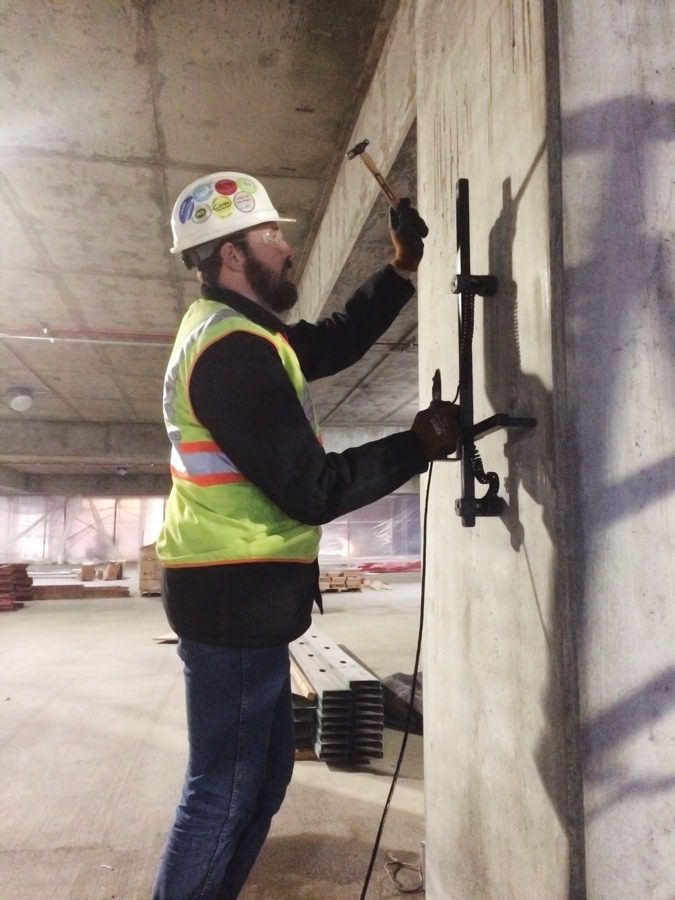
Applicable On:
Concrete
Asphalt
Soil
Rock
Masonry
Wood
Determine:
Pavement system profiles including the surface layer, base and subgrade materials
Surface opening crack depths
Freeze-thaw damage depth measurement
Fire damage depth measurement
Abutment depths of bridges
Condition assessments of concrete liners in tunnels, and other structural concrete conditions
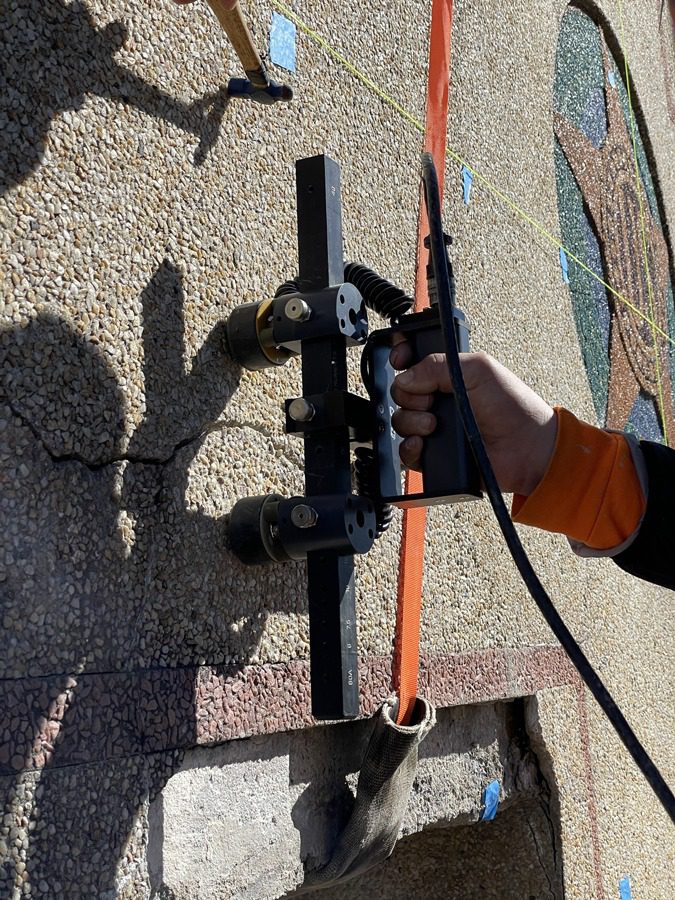
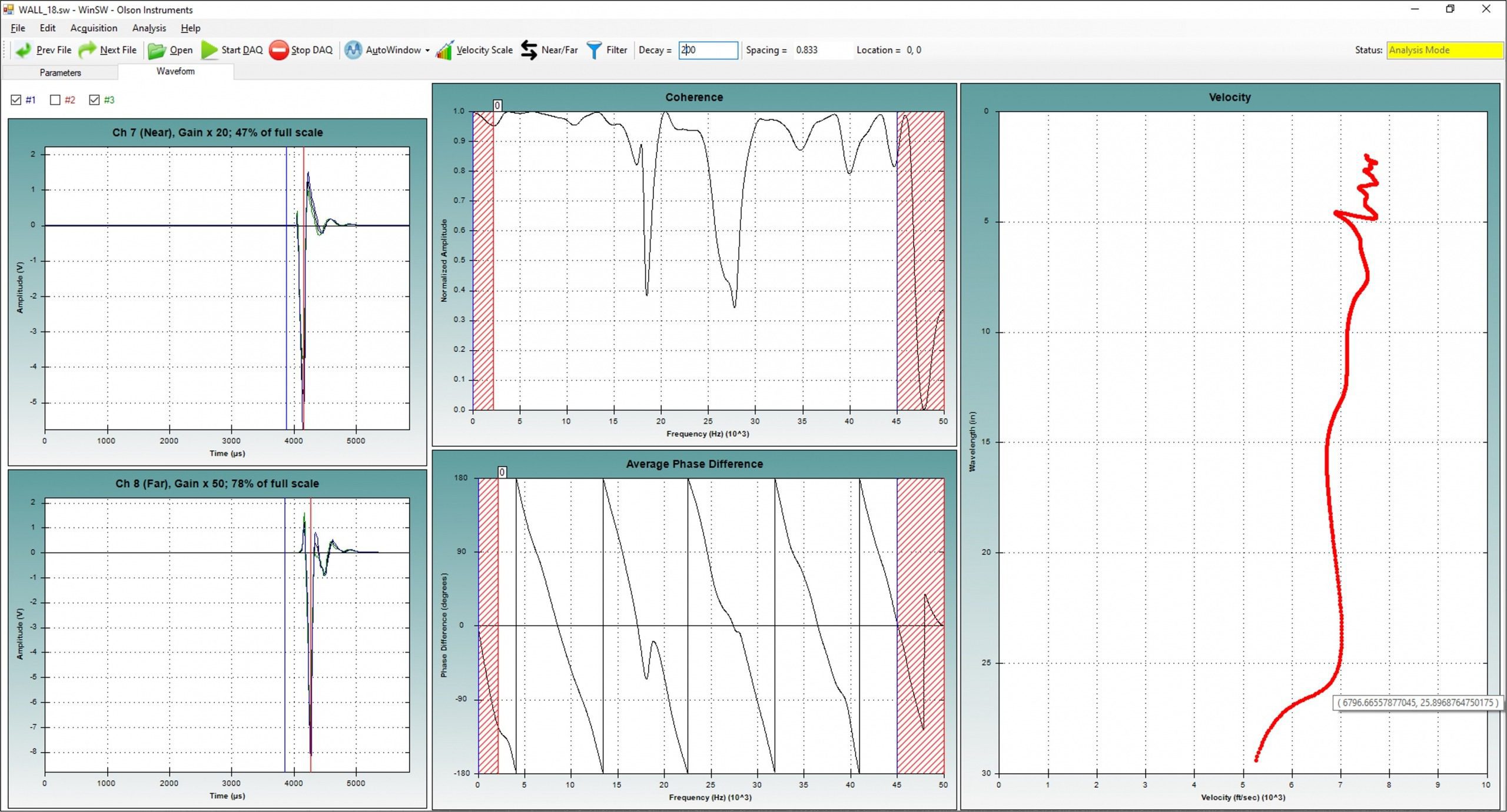
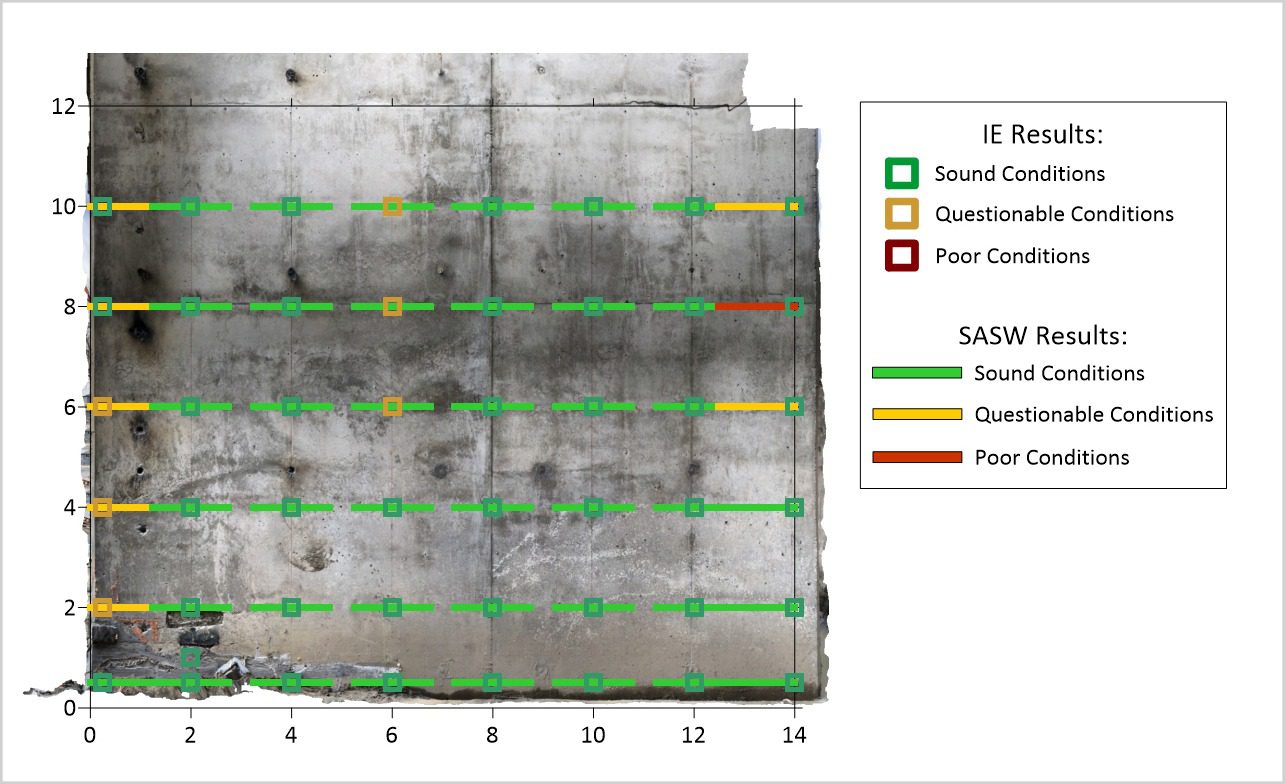
The SASW System
Diagnose Cracking
This test evaluates alkali-silica, fire, freeze-thaw cracking damage and crack depth
Rapid Data
Receivers mounted on the SASW bar allow for fast and accurate field measurements with results displayed as real-time waveform
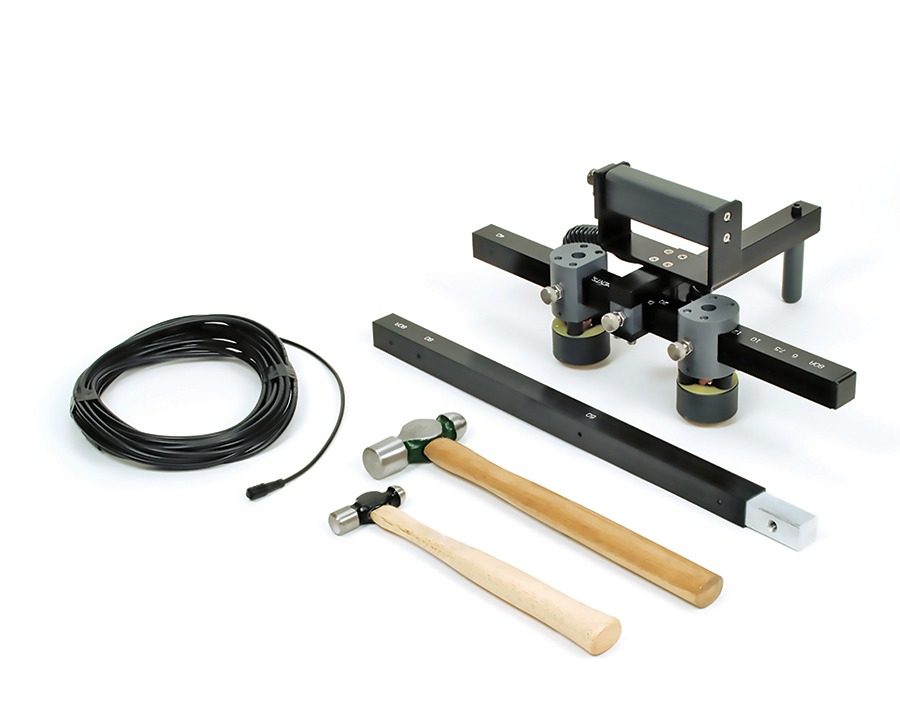
Accurate Testing
SASW measurements are accurate to within 5% for the determination of the thickness and stiffness of the top layer in a pavement system
Convenient
The SASW system is compact, durable, and easily transported allowing for multiple tests per day
Variety of Materials
Applicable on concrete, asphalt, soil, rock, masonry, and wood
SASW CASE STUDY
Structural, Pavement, & Tunnel Methods
Foundation Depth & Integrity Methods
Geophysical Methods
Seismic
Electrical Resistivity
Electromagnetics
Ground Penetrating Radar

